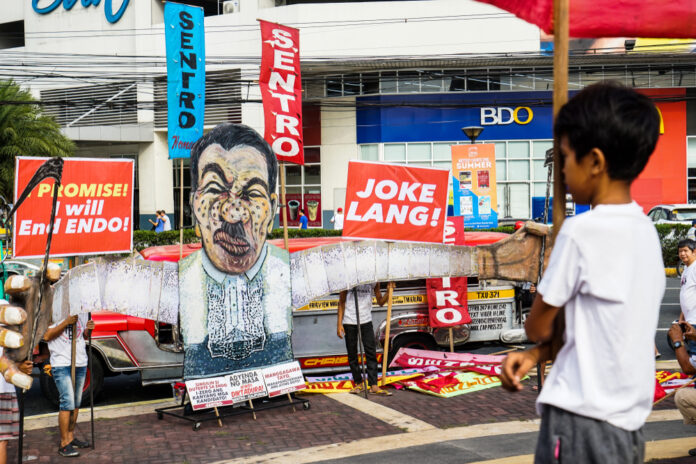Here we are again, watching the political drama unfold with the arrest of former President Rodrigo Duterte. It’s strange how something that’s supposed to be about justice often turns into a series of complex, tangled arguments, full of political posturing and personal pride.
Duterte, once a leader who ruled with a heavy hand, is now on his way to The Hague, where he will face trial at the International Criminal Court (ICC). His arrest by Interpol has sent ripples through the Philippines, and opinions are as divided as ever—fragmented like the islands that make up this archipelago.
The main issue, as it seems for many of Duterte’s supporters, is the question of sovereignty. His daughter, Vice President Sara Duterte, has expressed strong disapproval of the arrest, calling it a surrender of the country’s independence to foreign powers. She argues that handing over a Filipino citizen—a former president, no less—to the jurisdiction of an international court is an affront to the nation’s sovereignty. This is a powerful sentiment, resonating with those who see it as a betrayal of the Philippines’ autonomy.
But what exactly does sovereignty mean in this context? It’s easy to throw the word around when there’s a sense of loss or betrayal, but when you dig a little deeper, it becomes harder to ignore the fact that sovereignty doesn’t mean much if a country allows its leaders to act above the law. Duterte’s war on drugs was brutal and indiscriminate, and it’s precisely because of these actions that the ICC is involved now. At what point does a nation’s sovereignty become an excuse to shield leaders from accountability?
President Marcos, who now holds the reins of power, has defended the arrest, explaining that the ICC’s investigation into Duterte’s actions began while the Philippines was still a member of the tribunal. The country withdrew from the ICC in 2019, but that doesn’t change the fact that Duterte was once part of the system. In this case, the government’s cooperation with Interpol rather than the ICC itself is framed as a practical decision—one meant to avoid complicating future efforts to bring criminals to justice.
There’s something undeniably political about all of this, of course. The arrest is bound to have long-term consequences, and it’s easy to see why those who were close to Duterte would be up in arms. But there’s a subtle irony in how this all plays out. Duterte, who built his presidency on defiance and a promise to take no prisoners, now faces an international reckoning. And while his supporters frame this as persecution, it’s difficult to overlook the fact that this is the very consequence of his own actions.
The reality is that this isn’t just about sovereignty or politics. It’s about a man facing the consequences of the choices he made while in power. There may be protests, there may be speeches, and there may be accusations of betrayal, but the fact remains: the world is watching, and Duterte will be held to account. Whether that’s political persecution or justice is, in the end, something only time will tell.
Perhaps the greater question, though, is not whether Duterte should be tried, but how much of what he left behind will linger in the country’s consciousness. The arrest is just the beginning of what promises to be a long, complicated process—a reminder of how justice, even when delayed, is rarely as simple as a matter of black and white.







